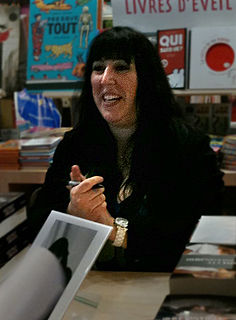A Quote by Edward Bulwer-Lytton, 1st Baron Lytton
To how many is the death of the beloved the parent of faith!
Related Quotes
The traditional paradigm of parenting has been very hierarchical, the parent knows best and very top down. Conscious parenting topples [this paradigm] on its head and creates this mutuality, this circularity where both parent and child serve each other and where in fact, perhaps, the child could be even more of a guru for the parent .... teaching the parent how the parent needs to grow, teaching the parent how to enter the present moment like only children know how to do.
The curt truth is that, in a deep secret way, the state of being beloved is intolerable to many. The beloved fears and hates the lover, and with the best of reasons. For the lover is forever trying to strip bare his beloved. The lover craves any possible relation with the beloved, even if this experience can cause him only pain.
Faith shall save your Soul from Death. Without Faith, Death is a drowning, the end of ends, and what sane man wouldn't fear that? But with Faith, Death is nothing worse than the end of the voyage we call life, and the beginning of an eternal voyage in a company of our Loved Ones, with griefs and woes smoothed out, and under the capacity of our Creator.
Religion provides the only story that is fundamentally consoling in the face of the worst possible experiences - the death of a parent, for instance. In fact, many religions take away the problem entirely, because their adherents ostensibly believe that they're going to be reunited with everyone they love, and death is an illusion.
There is to me about this place a smell of rot, the smell of rot that ripe fruit makes. Nowhere, ever, have the hideous mechanics of birth and copulation and death -those monstrous upheavals of life that the Greeks call miasma, defilement- been so brutal or been painted up to look so pretty; have so many people put so much faith in lies and mutability and death death death.
Meditation upon death does not teach one how to die; it does not make the departure more easy, but ease is not what I seek. Beloved boy, so willful and brooding, your sacrifice will have enriched not my life but my death. ... Centuries as yet unborn within the dark womb of time would pass by thousands over that tomb without restoring life to him, but likewise without adding to his death, and without changing the fact that he had been.





































